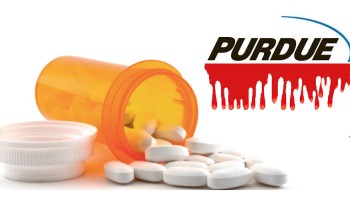The Sackler family and their company are accused of misrepresenting the risks of their signature drug OxyContin and aggressively marketing opioids, making billions of dollars off the opioid epidemic.
The new plan submitted to a federal court raised the amount of money coming from the Sacklers from US$3 billion to $4.2 billion. According to Forbes, the family's net worth is estimated at nearly $11 billion.
The proposed sum would have to be paid out over ten years but Massachusetts State Attorney General Maura Healy said such a deal would preserve the family’s fortune and skirt accountability.
“Purdue has filed a plan to emerge from bankruptcy and wipe out thousands of lawsuits against them and avoid justice,” Healy said in a video statement posted to her Facebook page.
“They have pitched this to the public almost like they are making a donation for charity, but Purdue and the Sacklers need to do better,” she added.
Loren Fouch CEO of Mayhill Hospital, an acute care center specializing in mental health and chemical dependency, shared what kind of impact prescription opioids and public policy may have had.
“Patients suffering from opioid use disorder through means of legal prescriptions had stayed quite high until recent regulations were put into place to monitor volumes of opioids prescribed,” Fouch said.
“What we have seen is the rise of heroin and street opioids once again and individuals suffering from substance use disorder supplementing their lack of opioids with other substances,” she said.
Under the proposed plan, Purdue Pharma would be replaced by a new company, indirectly owned by the states and Native American tribes and criticized by a group of states attorneys general as overly complicated. The profits of the new company would be put into trusts to be used in efforts to end the opioid epidemic.
The plan also promises that the new company will develop low cost medications to treat opioid addiction and reverse opioid overdoses.
Victims of the opioid crisis will receive payouts depending on how their claims are rated using a points system, according to the plan. Tier one personal injury claims could receive between $16,000 and $48,000 while tier three claims will likely receive $3,500, although details about calculating the payouts are vague.
“It is impossible to determine with certainty how these points will translate into dollars and how much money any specific holder of a qualifying opioid-related personal injury claim will receive from the PI Trust,” the plan said.
Funding and access, according to Fouch, are two big hurdles in addressing opioid addiction.
“One of the biggest struggles is helping these patients engage in programming when they are unfunded, in remote rural areas, or don’t have access to providers,” she said.
“The difficulty is that window of engagement is small so treatment must be immediate, facility transfers must be expedited, and maintaining the patient’s willingness as they begin to experience life without substances is key,” she explained.





